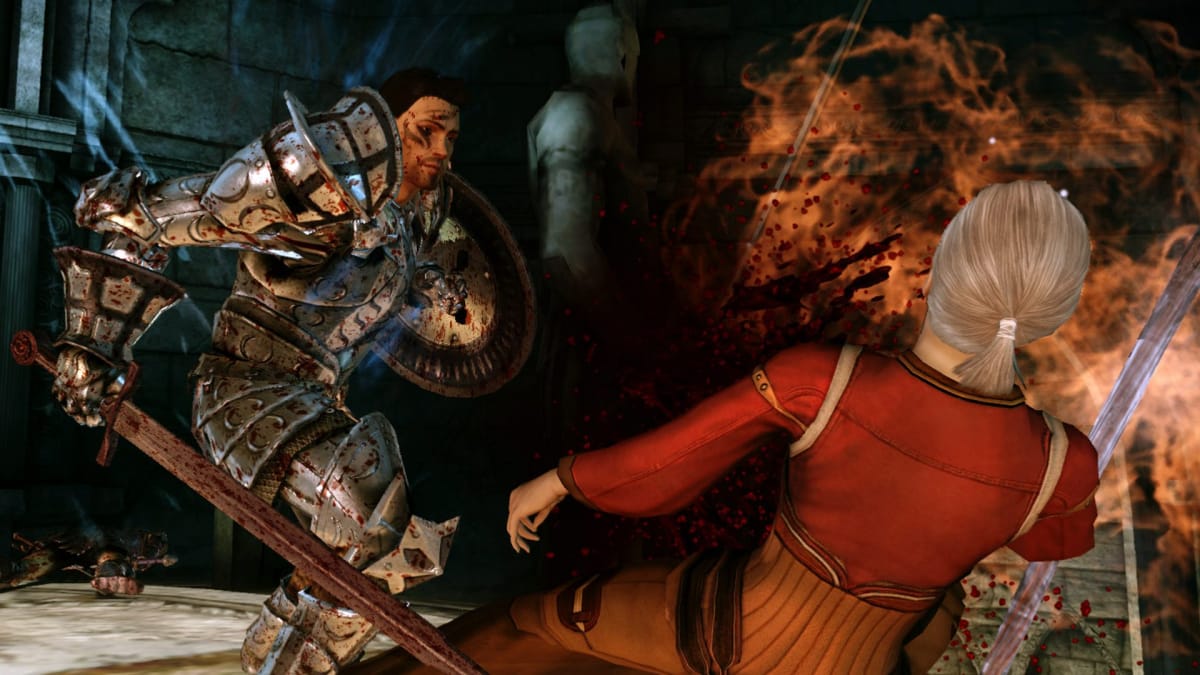If you've ever played any kind of Role Playing Game like Skyrim or Dragon Age or Mass Effect, or for that matter, virtually any game that features non-hostile Non-Playable Characters, you may notice that occasionally some of those NPCs will start blurting out some dialogue at you.
Depending on the game and the situation you are in, that dialogue may be an amusing little quip about someone stealing your sweet roll, or perhaps something about catching an arrow with their knee, or maybe even something useful that leads to a quest. Obviously, if you play the game long enough, some of the NPCs start to sound like broken records, but such a feature is usually intended to help newer players feel like they are in a living, breathing world.
The Dragon Age series in particular have received high praise for its dialogue and voice acting, which shouldn't come as much of a surprise when you have several companions who talk to and about each other, numerous named NPCs, and a seemingly infinite supply of generic NPCs.
Naturally, it would be rather impractical to find each and every character and talk to them, and for some, the idea of listening to some guy go on and on about his dead friends or somesuch is enough to cause them to skip the dialogue entirely. However, it would be a bit of a disservice to do such a thing constantly, as all that annoying dialogue may prove to be very interesting, unless of course you don't care about backstory at all.

For those who do pay attention to the dialogue though, there is so much information that can be inferred from just simple banter. One of the most (in)famous and simplest examples of this exists in Skyrim, where you can occasionally hear the guards talking about the curved swords that are preferred by Hammerfell's warriors.
From that one line alone, you can thus make a reasonable assumption that Hammerfell's soldiers tend to be a very rare sight in Skyrim and that Hammerfell and Skyrim have wildly different tastes when it comes to weapon design. Fortunately, Dragon Age's NPCs are a bit more expressive and less prone to repetition, showing the potential of such a gameplay feature and its ability to help create an interesting world.
Take the Mage's prologue in Dragon Age: Origins for instance. In that little opening area, there are so many NPCs who, even if they were not directly addressing your character, give insight into how magic and mages are treated in Dragon Age. Walk around the Circle Tower, and you might overhear conversations about the allure of blood magic, bickering about the various political mage factions, and maybe even a snippet about how fear can lead to demonic possession.
Choose any other prologue, and you might not even know that mages are ostracized by the rest of society out of fear until much later in the game, where it is then made explicitly clear that that is the case. Similarly, you can, through listening in on NPC banter, accurately assume that crime and a controversial caste system are fairly large problems for the dwarves, that religion plays a large part in perpetuating the fear of mages, and that perhaps the holier-than-thou organizations, most notably the Templars, have really good PR departments that are experts at keeping some unflattering secrets hidden from the public.

Of course, there's a lot more you can find out about the unique backstory of Dragon Age by listening in on the conversations that NPCs have throughout the series. If you still have any doubts about the potential that seemingly useless banter has in improving gameplay if done correctly, you can just compare difference between Halo and Destiny: the former gives Master Chief and Cortana plenty of dialogue, making it seem like they are real characters with real emotions.
While the latter doesn't even have any notable dialogue between the main character and their Ghost much less any dialogue between NPCs, making the world seem rather emotionless and drab despite having some very impressive level design.
Have a tip, or want to point out something we missed? Leave a Comment or e-mail us at tips@techraptor.net












